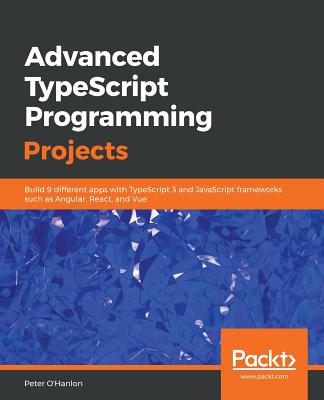Machine Learning with scikit-learn Quick Start Guide: Classification, regression, and clustering techniques in Python
暫譯: 使用 scikit-learn 的機器學習快速入門指南:Python 中的分類、回歸和聚類技術
Kevin Jolly
- 出版商: Packt Publishing
- 出版日期: 2018-10-31
- 售價: $1,320
- 貴賓價: 9.5 折 $1,254
- 語言: 英文
- 頁數: 172
- 裝訂: Paperback
- ISBN: 1789343704
- ISBN-13: 9781789343700
-
相關分類:
Machine Learning
海外代購書籍(需單獨結帳)
相關主題
商品描述
Deploy supervised and unsupervised machine learning algorithms using scikit-learn to perform classification, regression, and clustering.
Key Features
- Build your first machine learning model using scikit-learn
- Train supervised and unsupervised models using popular techniques such as classification, regression and clustering
- Understand how scikit-learn can be applied to different types of machine learning problems
Book Description
Scikit-learn is a robust machine learning library for the Python programming language. It provides a set of supervised and unsupervised learning algorithms. This book is the easiest way to learn how to deploy, optimize, and evaluate all of the important machine learning algorithms that scikit-learn provides.
This book teaches you how to use scikit-learn for machine learning. You will start by setting up and configuring your machine learning environment with scikit-learn. To put scikit-learn to use, you will learn how to implement various supervised and unsupervised machine learning models. You will learn classification, regression, and clustering techniques to work with different types of datasets and train your models.
Finally, you will learn about an effective pipeline to help you build a machine learning project from scratch. By the end of this book, you will be confident in building your own machine learning models for accurate predictions.
What you will learn
- Learn how to work with all scikit-learn's machine learning algorithms
- Install and set up scikit-learn to build your first machine learning model
- Employ Unsupervised Machine Learning Algorithms to cluster unlabelled data into groups
- Perform classification and regression machine learning
- Use an effective pipeline to build a machine learning project from scratch
Who this book is for
This book is for aspiring machine learning developers who want to get started with scikit-learn. Intermediate knowledge of Python programming and some fundamental knowledge of linear algebra and probability will help.
Table of Contents
- Introducing Machine Learning with scikit-learn
- Predicting categories with K-Nearest Neighbours
- Predicting categories with Logistic Regression
- Predicting categories with Naive Bayes and SVMs
- Predicting numeric outcomes with Linear Regression
- Classification & Regression with Trees
- Clustering data with Unsupervised Machine Learning
- Performance evaluation methods
商品描述(中文翻譯)
部署使用 scikit-learn 的監督式和非監督式機器學習演算法以進行分類、回歸和聚類。
主要特點
- 使用 scikit-learn 建立您的第一個機器學習模型
- 使用分類、回歸和聚類等流行技術訓練監督式和非監督式模型
- 了解如何將 scikit-learn 應用於不同類型的機器學習問題
書籍描述
Scikit-learn 是一個強大的 Python 程式語言機器學習庫。它提供了一組監督式和非監督式學習演算法。本書是學習如何部署、優化和評估 scikit-learn 提供的所有重要機器學習演算法的最簡單方法。
本書教您如何使用 scikit-learn 進行機器學習。您將從設置和配置您的機器學習環境開始,使用 scikit-learn。為了將 scikit-learn 應用於實際,您將學習如何實現各種監督式和非監督式機器學習模型。您將學習分類、回歸和聚類技術,以處理不同類型的數據集並訓練您的模型。
最後,您將了解一個有效的流程,幫助您從零開始建立一個機器學習項目。在本書結束時,您將對建立自己的機器學習模型以進行準確預測充滿信心。
您將學到的內容
- 學習如何使用所有 scikit-learn 的機器學習演算法
- 安裝和設置 scikit-learn 以建立您的第一個機器學習模型
- 使用非監督式機器學習演算法將未標記數據聚類成組
- 執行分類和回歸機器學習
- 使用有效的流程從零開始建立機器學習項目
本書適合誰
本書適合希望開始使用 scikit-learn 的有志機器學習開發者。對 Python 程式語言的中級知識以及一些線性代數和概率的基本知識將有所幫助。
目錄
1. 使用 scikit-learn 介紹機器學習
2. 使用 K-最近鄰預測類別
3. 使用邏輯回歸預測類別
4. 使用朴素貝葉斯和支持向量機預測類別
5. 使用線性回歸預測數值結果
6. 使用樹進行分類和回歸
7. 使用非監督式機器學習聚類數據
8. 性能評估方法












